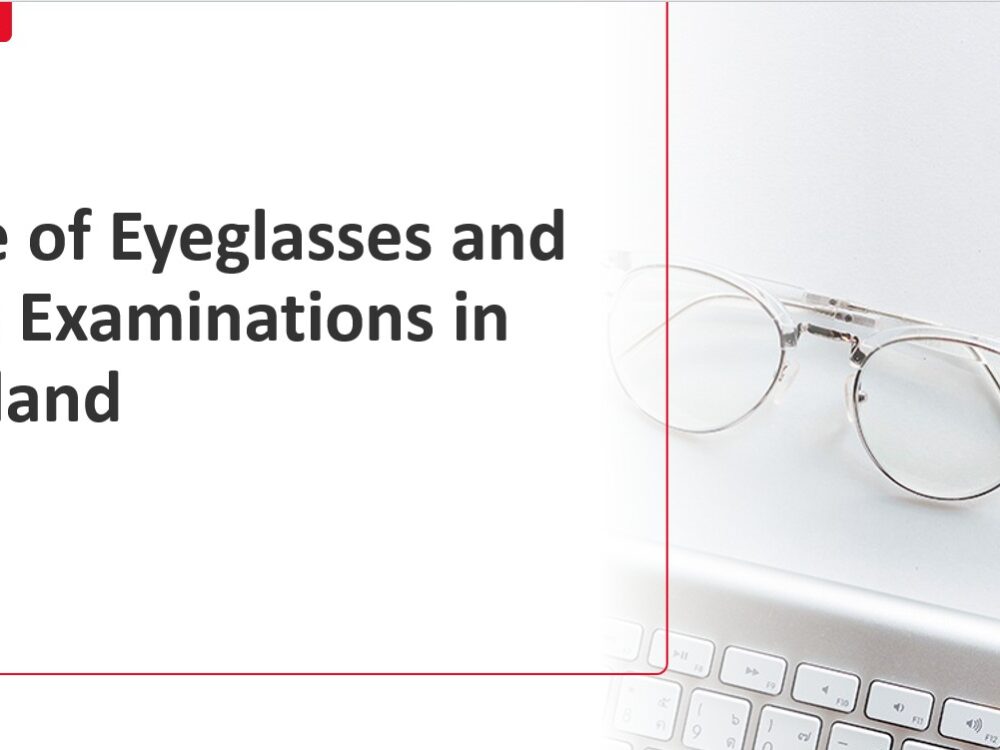
The government decided at the spending limits session to reform the division of labour in eye health, following a strong recommendation from experts. “Overlong eye health care queues will be largely reduced by making use of the significantly expanded expertise of optometrists, who have limited prescribing rights. This is a historic policy whose benefits must be passed on to the public soon,” said Panu Tast, CEO of Finnish Association of Vision and Eyecare NÄE ry. The expert study that preceded the decision is almost unanimously in favour of the change.
The government’s decision at the spending limits session is a significant decision to reform eye health care in Finland. At the heart of the decision is the removal of Article 16 of the Decree of Health Care Professionals, which, among other things, forces ophthalmologists to treat anyone who has ever had eye surgery, even if only refractive surgery. This change was strongly called for by an expert report, now published, which found Finland’s current eye health care system to be ineffective.
“It is truly fantastic that the government came up with a clear expert line at the spending limits session: eight out of ten top experts believe that the overlong eye health care queues can be significantly reduced with the help of optometrists. The removal of Article 16 is key to this, freeing up ophthalmologists’ time to treat demanding eye conditions. In some ways, Article 16 has led to up to 150,000 unnecessary visits to ophthalmologists a year,” said Panu Tast, CEO of Finnish Association for Vision and Eye Health NÄE ry.
“What is essential now is to put the decision into practice quickly, i.e. to deliver the benefits to the public,” emphasises Tast.
Stand-alone solution or risk of delay?
The government’s decision can be implemented either as a quick stand-alone decision or as part of a wider overall reform. Mika Keinänen, a healthcare productivity expert interviewed for the study, assesses the options in the final report as follows:
“Finland has a political preference for structural and comprehensive reforms, after which there is still a need to proceed with individual operational reforms in order to realise the benefits of the reforms. There is therefore no reason not to implement such a single improvement immediately. Throughout my 15-year career, grassroots improvements have waited in vain for overall reforms, which have then failed or gone wrong,” argues Mr Keinänen.
Henrik Wickström, a member of the Social Affairs and Health Committee (RDP), sees the experience of the Western Uusimaa Wellbeing Services County as a reason for a quick solution.
“My own wellbeing county, Western Uusimaa, was the first to introduce the possibility of using optometrists for schoolchildren’s eye examinations some years ago. Based on this, we know that there are now significant savings to be made! When the more expensive time and highly specialised skills of ophthalmologists can be focused on eye care, everyone wins – optometrists are now fully qualified to perform eye examinations. I see no rational reason to delay a reform that will deliver both better service and savings,” Mr Wickström analysed.
Significant improvement for sparsely populated areas
The reform is estimated to generate total savings of several tens of millions of euros. Citizens will benefit from better geographical access to services, extended service hours and lower prices.
“In sparsely populated areas, people will no longer have to travel perhaps a long way to an ophthalmologist`s appointment or wait months for the appointment just to replace their glasses but will be able to get the service they need more often from their nearest optician’s shop. Services will be available much closer to home as well as over a much wider range of timescales. Naturally, this also means big financial savings, as there is no need to pay expensive specialist fees when there is no eye health reason for a visit. If, on the other hand, symptoms, or findings suggestive of eye disease appear in the eyes, the optometrist will of course immediately refer the patient to an ophthalmologist, as is already required by law,” says Riikka Torvela, Chair of the Suomen Optometrian ammattilaiset ry – Soa (Finnish Professionals of Optometry), summarising the practical benefits.
The study “Productivity perspective on the organisation of eye health care” was commissioned by NÄE ry and carried out by the strategic communications agency Hopiasepät, which interviewed 10 leading experts in the field of productivity and organisation of health care for a total of about 10 hours.
The report will be published at an event invited by Henrik Wickström, Member of Parliament, at the Citizens’ Info of the Small Parliament on 26 April 2024 at 08.00-09.00.
Report: a productivity perspective on the organisation of eye care (FI)
Further information:
Panu Tast, CEO, Finnish Association of Vision and Eye Health care NÄE ry, 029 3000 901, panu.tast@naery.fi
Riikka Torvela, President, Suomen Optometrian ammattilaiset ry – Soa, 040 538 5108, riikka.torvela@erto.fi
Jussi Seppälä, Managing Director, Hopiasepät Oy, 050 529 4562, jussi.seppala@hopiasepat.fi


